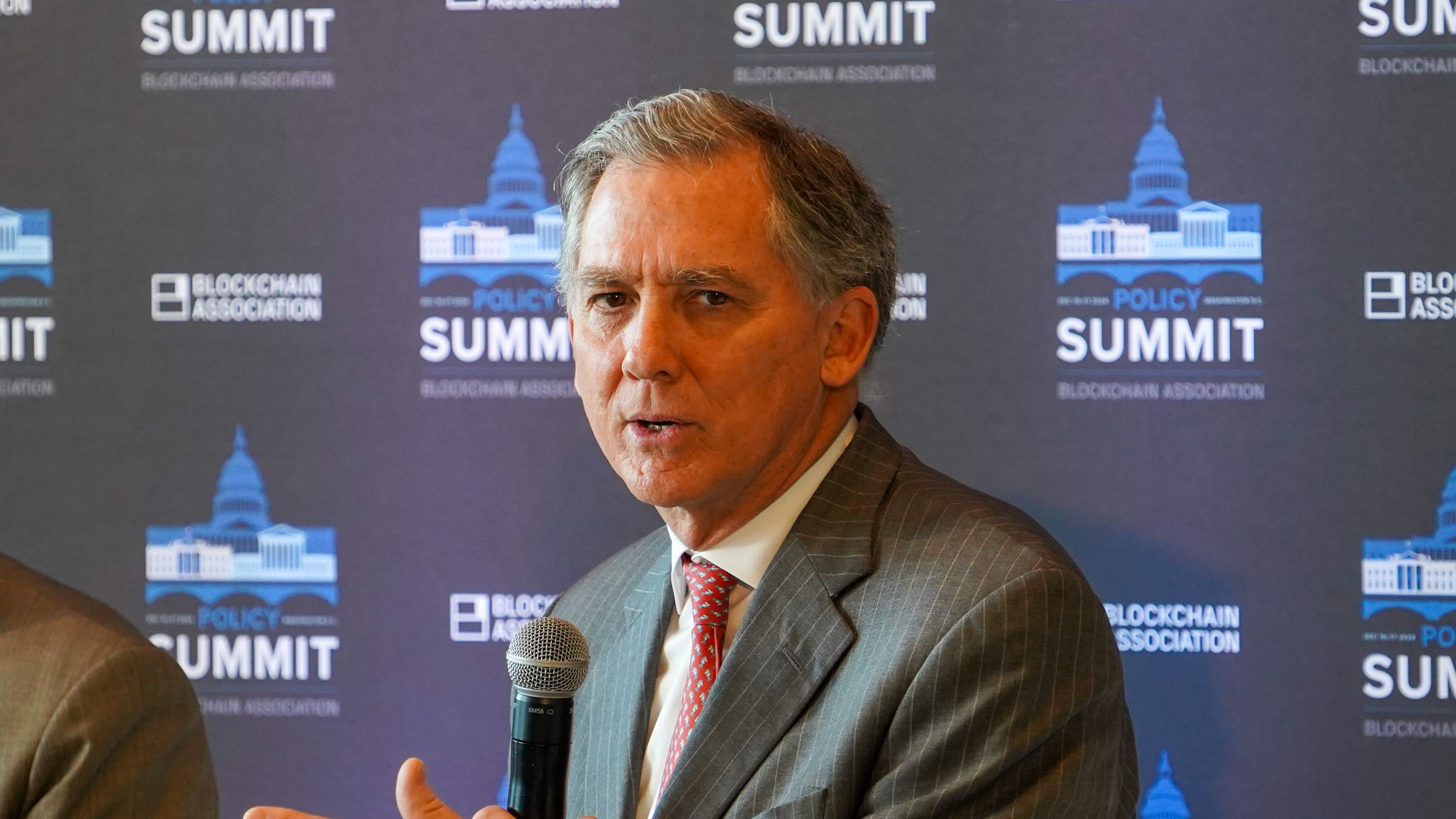If the U.S. House of Representatives manages to reach a floor vote on the Senate’s stablecoin bill next week, it could result in President Donald Trump fulfilling at least half of his mission to deliver new laws for the crypto sector this summer.
That’ll be a highlight among a bundle of actions during a period labeled “Crypto Week” by lawmakers hoping to record significant legislative wins for the sector. But the bigger-ticket item is the Digital Asset Market Clarity Act to establish first-ever federal regulations to oversee the wider U.S. crypto markets. That effort is also going to spend some more immediate time in the spotlight during a Senate hearing on Wednesday as that chamber continues its crypto momentum after notching a major recent win with passage of its stablecoin bill.
The Senate bill to regulate stablecoin issuers, the Guiding and Establishing National Innovation for U.S. Stablecoins (GENIUS) Act, will be tackled without an effort to meld its language with the House’s similar legislation, a person familiar with the House’s planning confirmed. A yes vote in the House would send it to Trump’s desk to be signed into law, where it would become the first major law to regulate the U.S. crypto space.
That development would effectively abandon the House’s own Stablecoin Transparency and Accountability for a Better Ledger Economy (STABLE) Act, as the House bends to the momentum demanded by Trump and its Senate counterparts. Politics is speeding beyond recent suggestions from Representative French Hill that the two chambers could iron out material differences between the bills to find a “common constructive landing place.”
Clarity
As GENIUS rises toward a potential status as a second major Trump legislative accomplishment in as many weeks — joining his budget push that is already energizing significant elements of the president’s agenda — the House will redirect its major focus on the Clarity Act that’s the bigger hit in the one-two crypto punch weighed by Congress. At his White House crypto summit earlier this year, Trump set an ambitious August deadline for two related pieces of crypto legislation: the stablecoin bill and rules for the structure of crypto markets. When the Senate recently passed its legislation to govern the issuers of stablecoins (such as Tether’s USDT and Circle’s USDC), the president called for the House to sign off on that bill right away rather than pushing its own language, and he seems to be getting his way.
Senator Bill Hagerty, the backer of the GENIUS Act, said in a statement, “I look forward to enacting the GENIUS act into law, and to working with my colleagues to move the CLARITY act through the Senate in short order.”
While the Senate Banking Committee Chairman Tim Scott had declared a September 30 deadline for market structure legislation to be cleared through the Senate, it was unclear whether the chamber would lean into its own legislation or borrow more heavily from the House’s Clarity Act. Scott said that Clarity would be a “strong template for us to move forward on.”
However, Scott’s committee can’t move forward alone and also needs the Senate Agriculture Committee to agree to the approach, and that panel is so far trailing. A spokesperson told CoinDesk that Chairman John Boozman is keen to install the Commodity Futures Trading Commission as a chief crypto regulator and that his committee will pursue a hearing sometime this month, though its calendar remains bare.
So far, House lawmakers have cleared the Clarity Act through the relevant committees, and a vote from the overall House would send it over to the Senate for consideration. If Trump follows his game plan with GENIUS, he may urge the Senate to just take up the House legislation without putting its own spin on the language and delaying the process. But in most legislative matters, the Senate’s more difficult road for passing bills tends to put it into the driver’s seat as efforts near the finish line.
Hill said he’d be “ready to work alongside the Senate as they work to advance standalone market structure legislation by the end of September.”
A digital assets advocacy group, Stand With Crypto, sent a letter to all the House lawmakers this week calling form them to get behind the Clarity Act, arguing that the bill “will not only enable and empower developers to innovate, but also protect consumers through choice, foster greater participation in the blockchain economy and strengthen national security.”
And industry insiders including Ripple CEO Brad Garlinghouse were set to make a case for legislation at Wednesday’s Senate hearing.
“Once market structure legislation for digital assets becomes law in the U.S., this will catalyze a new era of U.S. competitiveness and unlock efficiencies in financial transactions — dramatically helping consumers and businesses alike,” Garlinghouse contended in the testimony he submitted to the Senate Banking Committee.
Crypto Week is also set to tackle what’s been a shared grievance of the crypto industry and congressional Republicans: the idea that the U.S. could ever issue a central bank digital currency (CBDC). The Anti-CBDC Surveillance State Act would block such an instrument from ever being created by the Federal Reserve, with its advocates arguing that a U.S. token could let the government spy on citizens’ finances, though there has been no serious U.S. effort underway to launch such a coin to compete with other jurisdictions such as China and Europe.
What’s next
The GENIUS Act is widely expected to pass the House, and an earlier version of the CBDC bill already did last year. If the market structure legislation also passes the House, as a predecessor bill known as Financial Innovation and Technology for the 21st Century Act (FIT21) easily did in the last session, the Senate becomes the last hurdle for the crypto industry’s top priority.
Still, it’s not a done deal there. The Senate generally needs 60 votes to pass a bill of this kind. While GENIUS got a whopping 68-30 approval, many of the Democrats who joined Republicans to pass the stablecoin bill shared reservations about the coming market structure effort.
Some influential Democrats, such as Senator Elizabeth Warren, hold a lot of sway over their party, and they’ve argued for months that the market structure effort leaves regular people insufficiently protected and poses national-security concerns. However, the more prominent complaint from Democrats is that President Trump’s heavy involvement in the crypto industry poses a potential conflict.
Though his representatives have defended his family’s deep ties to businesses that include involvement with memecoins, stablecoins, non-fungible tokens (NFTs), digital wallets and crypto exchange-traded funds (ETFs), Trump’s Democratic critics say the president’s ties amount to high-level corruption, and the lawmakers are pushing legislative provisions to ban senior government officials from such connections to the sector.



